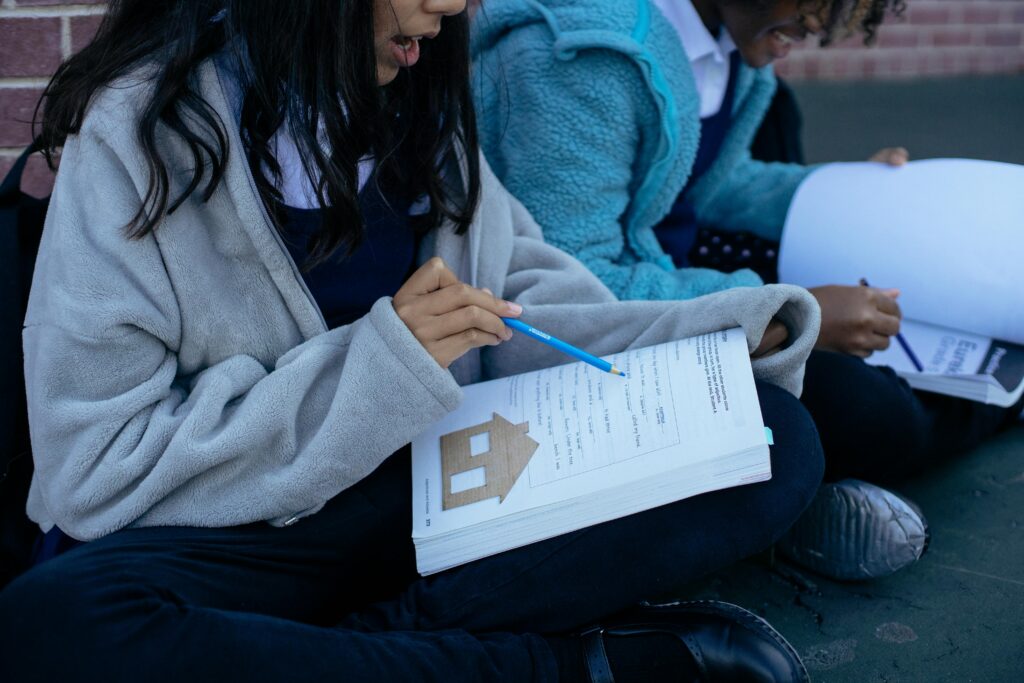Application Tips for Applying to IB Schools in Ontario
Applying to International Baccalaureate (IB) schools in Ontario can seem like a daunting process, but don’t worry, we’ve got you covered. Here are some practical tips to help you navigate the application process smoothly. With the right preparation and a positive mindset, you’ll be well on your way to securing a spot for your child in an IB program.
Start Early and Stay Organized
First and foremost, start early! The application process for IB schools often begins much earlier than for regular public schools. Make sure to research the specific deadlines for each school you’re interested in. Creating a timeline can be incredibly helpful. Mark key dates on your calendar, such as open house events, application deadlines, and interview dates. Staying organized will help ensure you don’t miss any critical steps.
Keep a folder, either digital or physical, where you store all important documents and information. This folder should include application forms, copies of your child’s transcripts, letters of recommendation, and any other required paperwork. By having everything in one place, you’ll save time and reduce stress as deadlines approach.
Research and Visit Schools
Not all IB schools are created equal, and it’s important to find the right fit for your child. Take the time to research each school’s unique offerings, philosophy, and community. Look into their extracurricular programs, language options, and how they integrate the IB curriculum. Some schools might have a stronger emphasis on the arts, while others might excel in sciences or sports.
Visiting schools is a crucial part of the research process. Attend open house events and schedule private tours if possible. This will give you a feel for the school’s environment and culture. Don’t be afraid to ask questions about their teaching methods, support services, and the overall student experience. Meeting teachers and administrators can also provide valuable insights and help you gauge whether the school is a good fit for your child.
Prepare for the Admission Tests and Interviews
Many IB schools require students to take admission tests and participate in interviews as part of the application process. To help your child prepare, start by finding out what types of tests are required. These might include standardized tests, subject-specific assessments, or even cognitive ability tests. Once you know what to expect, you can help your child practice and feel more confident.
For interviews, practice common questions with your child. These might include inquiries about their interests, academic strengths, and reasons for wanting to join the IB program. Encourage your child to be honest and thoughtful in their responses. It’s also important for them to demonstrate enthusiasm and a genuine interest in the IB philosophy. Mock interviews can be a great way to practice and reduce anxiety.
Gather Strong Letters of Recommendation
Letters of recommendation can play a significant role in the application process. Schools often look for recommendations that highlight a student’s academic abilities, character, and potential for success in the IB program. Choose recommenders who know your child well and can speak to their strengths. These might include current teachers, coaches, or extracurricular activity leaders.
Give your recommenders plenty of notice and provide them with any necessary information about the school and the IB program. This will help them write more personalized and effective letters. It’s also a good idea to follow up with a thank-you note to show your appreciation for their support.
Highlight Your Child’s Extracurricular Activities
IB programs value well-rounded students who demonstrate a commitment to extracurricular activities and community service. Make sure to highlight your child’s involvement in sports, arts, clubs, and volunteer work on their application. These activities not only show your child’s diverse interests but also their ability to manage time and balance responsibilities.
Encourage your child to reflect on their experiences and write about them in their application essays. They should explain what they’ve learned from these activities and how they’ve contributed to their personal growth. This can help set them apart from other applicants and show their readiness for the IB program.
Write Compelling Personal Statements
Many IB schools require students to submit personal statements or essays as part of the application. This is an opportunity for your child to showcase their personality, goals, and motivations. Encourage your child to be authentic and write from the heart. They should explain why they are interested in the IB program and how they believe it will benefit their education and future.
Remind your child to proofread their essays carefully and ensure they are well-organized and free of errors. It can also be helpful to have a teacher or mentor review their writing and provide feedback. A well-crafted personal statement can make a strong impression on the admissions committee.
Stay Positive and Persistent
The application process can be competitive, and it’s important to stay positive and persistent. Encourage your child to put their best foot forward and not to get discouraged by setbacks. If they don’t get into their first-choice school, there are often other excellent options available.
Remind your child that the application process is a learning experience in itself. It’s an opportunity to develop important skills such as time management, self-reflection, and effective communication. No matter the outcome, the effort they put into applying will serve them well in the future.
By following these practical tips, you can help your child navigate the application process for IB schools in Ontario with confidence and ease. Remember, preparation and organization are key. With your support and encouragement, your child will be well-prepared to embark on their IB journey. Good luck!

Entrance Requirements for Various IB Programs in Ontario
Applying to an International Baccalaureate (IB) program in Ontario is an exciting journey. Each school may have slightly different entrance requirements, but there are common elements that most programs look for. Understanding these requirements can help you prepare and increase your chances of acceptance. Let’s dive into the key entrance requirements you need to know.
Academic Performance and Transcripts
One of the first things IB programs look at is your child’s academic performance. Schools often request transcripts from the past few years to get a sense of your child’s academic strengths and consistency. They typically look for strong grades in core subjects such as math, science, and language arts. If your child has excelled in subjects relevant to the IB curriculum, it’s a definite plus.
Don’t worry if your child isn’t a straight-A student. Schools also consider the overall trend in their grades. Improvement over time can be just as important as consistently high marks. Make sure to have all your transcripts ready and in order. Some schools may require them to be translated if they’re not in English or French.
Standardized Tests
Many IB schools in Ontario require standardized tests as part of the application process. These tests help assess your child’s readiness for the rigorous IB curriculum. The types of tests can vary, but they often include assessments in math, reading comprehension, and sometimes even reasoning skills.
Preparation is key! Familiarize your child with the format of these tests and consider using practice materials to build their confidence. Remember, these tests are just one part of the application, so encourage your child to do their best without stressing too much about perfection.
Personal Statements and Essays
Personal statements and essays are a crucial part of the IB application process. This is where your child can really shine and show who they are beyond their grades. Schools want to see students who are motivated, curious, and passionate about learning.
Encourage your child to write from the heart. They should explain why they’re interested in the IB program, what they hope to gain from it, and how they plan to contribute to the school community. Personal stories and experiences can make their essays stand out. Proofreading is important, so have someone else read their essays to catch any errors or unclear sections.
Teacher Recommendations
Teacher recommendations provide valuable insights into your child’s abilities and character. Schools often require one or more letters of recommendation from current or past teachers. These letters should highlight your child’s academic strengths, work ethic, and personal qualities.
Choose teachers who know your child well and can provide detailed, positive feedback. It’s a good idea to give them plenty of notice and provide them with information about the IB program and what qualities the school is looking for. A well-written recommendation can make a significant impact on your child’s application.
Extracurricular Activities and Community Involvement
IB programs value well-rounded students who are involved in extracurricular activities and community service. They look for students who show leadership, commitment, and a willingness to engage with the world around them. This can include sports, arts, clubs, volunteer work, and any other activities your child is passionate about.
Make sure to include a detailed list of your child’s extracurricular activities in the application. Highlight any leadership roles or significant achievements. If your child has a unique hobby or interest, don’t hesitate to mention it. Schools appreciate students who bring diverse experiences and perspectives.
Interviews
Interviews are a common part of the IB application process. This is an opportunity for the admissions committee to get to know your child better and assess their fit for the program. Interviews can be nerve-wracking, but with some preparation, your child can make a great impression.
Practice common interview questions with your child and encourage them to be themselves. They should be prepared to talk about their interests, goals, and why they want to join the IB program. Remind them to be honest and thoughtful in their responses. A positive attitude and genuine enthusiasm can go a long way.
Language Proficiency
For schools offering bilingual IB programs or where English is not the first language of instruction, demonstrating language proficiency can be an important requirement. This might involve taking a language test or providing proof of prior study in the language of instruction.
If your child needs to demonstrate proficiency in a second language, make sure they have the necessary documentation or are prepared to take any required tests. This can include certificates from language courses, standardized test scores, or other proof of language ability.
Additional Requirements
Some schools may have additional requirements, such as portfolios for arts programs, auditions for music or drama, or specific assessments for particular subjects. Be sure to check each school’s requirements thoroughly and prepare accordingly. These additional requirements allow your child to showcase their unique talents and skills.

Preparing for IB Admission Interviews: Top Tips for Success
Getting ready for an admission interview for an International Baccalaureate (IB) program can be nerve-wracking. But don’t worry, with the right preparation, you can help your child feel confident and ready to shine. Here are some practical tips to help you navigate this important step in the application process.
Understand the Interview Format
First things first, it’s crucial to understand what the interview will be like. Each school may have its own unique format, but most will include a mix of questions about your child’s interests, academic strengths, and why they want to join the IB program. Some schools may also include a group discussion or a problem-solving task. Knowing what to expect will help you prepare more effectively.
Practice Common Questions
Practice makes perfect, right? Go through common interview questions with your child. Questions like “Why are you interested in the IB program?” or “What are your favorite subjects and why?” are likely to come up. Encourage your child to think about their answers and practice speaking them out loud. This will help them feel more comfortable and articulate during the actual interview.
Highlight Unique Strengths
Every child has something special to offer, so make sure your child knows their strengths and can talk about them confidently. Whether it’s their love for science, their talent in music, or their leadership skills in a school club, highlighting these unique qualities can set them apart from other candidates. Encourage your child to think about specific examples that showcase their strengths and achievements.
Stay Informed About the IB Program
Having a good understanding of the IB program itself can make a big difference. Encourage your child to learn about the program’s core elements, such as the Theory of Knowledge course, the Extended Essay, and the Creativity, Activity, Service (CAS) component. Being able to discuss these elements intelligently will show that your child is genuinely interested and well-prepared for the challenges of the IB program.
Dress Appropriately
First impressions matter! Help your child choose an outfit that is neat, professional, and comfortable. While the dress code may not be as strict as a job interview, looking presentable shows respect for the interviewers and the process. A good rule of thumb is to choose smart-casual attire – something they would wear to a formal school event.
Manage Nervousness
It’s completely normal to feel nervous before an interview. Teach your child some simple relaxation techniques, such as deep breathing or positive visualization, to help manage their anxiety. Remind them that it’s okay to take a moment to think before answering a question. A calm and collected demeanor will help them perform better and leave a positive impression.
Encourage Authenticity
Encourage your child to be themselves during the interview. Authenticity is key – interviewers want to get to know the real person behind the application. Remind your child that it’s okay to talk about areas where they might need improvement, as long as they also express a willingness to learn and grow. Being genuine will help build a connection with the interviewers.
Follow Up with a Thank You
Teaching your child the importance of good manners can go a long way. After the interview, help them draft a thank you note or email to the interviewers. This simple gesture shows appreciation and reinforces their interest in the program. It’s a small step that can leave a lasting impression.
Mock Interviews
If possible, arrange for your child to participate in a mock interview. This could be with a teacher, a family friend, or even you. Simulating the interview environment can help your child get used to the process and receive constructive feedback. It’s a great way to build confidence and improve their performance.
Stay Positive and Supportive
Finally, remember to stay positive and supportive throughout the preparation process. Your encouragement and belief in your child’s abilities will help boost their confidence. Celebrate their efforts and remind them that doing their best is what truly matters.
Preparing for an IB admission interview can be a daunting task, but with these tips, your child will be well on their way to making a great impression. Good luck!

Understanding Deadlines: Key Dates for Ontario IB School Applications
Navigating the application process for International Baccalaureate (IB) programs in Ontario can feel overwhelming, especially with all the important deadlines you need to keep track of. But don’t worry, we’re here to help you understand these critical dates and ensure you don’t miss any of them. Let’s break down the timeline and what you need to do at each stage.
Initial Application Deadlines
The first step in applying to an IB program is submitting your initial application. Deadlines for these applications can vary by school, but they generally fall between November and January. For example, some schools might require applications to be submitted by mid-December, while others might have a deadline in early January. Be sure to check the specific deadlines for each school you’re interested in, as missing this initial application can set back your entire process.
Entrance Exam and Assessment Dates
Once you’ve submitted your initial application, the next step is usually an entrance exam or assessment. These assessments often take place a few weeks after the application deadline, typically between January and February. Schools will provide specific dates, so make sure you note these and prepare accordingly. It’s a good idea to have your child practice beforehand, to help them feel more confident and ready on the day of the test.
Interview Schedules
After the entrance exam, many IB programs require an interview as part of the application process. Interview dates are usually scheduled from February to March. Schools often notify you of interview dates shortly after the entrance exams, so be on the lookout for these notifications and be ready to schedule your interview promptly. Preparing for the interview is crucial – practice common questions and help your child articulate their thoughts clearly.
Final Decision Notifications
The waiting period after interviews can be nerve-wracking, but knowing when to expect a decision can help ease some anxiety. Most IB programs in Ontario notify applicants of their final decisions between late March and early April. Mark this period on your calendar, and make sure to check your email regularly. This is also a good time to discuss any potential next steps with your child, depending on the outcome of the application.
Accepting Offers and Enrollment Deadlines
If your child is accepted into an IB program, congratulations! The next step is to accept the offer and complete any necessary enrollment paperwork. Deadlines for accepting offers and enrolling usually fall within a few weeks after you receive the acceptance notification, typically by late April to early May. Be prompt in completing these steps to secure your child’s spot in the program.
Preparing for the Start of the School Year
After you’ve completed the enrollment process, the focus shifts to preparing for the start of the school year. Schools might have orientation sessions, additional paperwork, or specific requirements that need to be completed over the summer. These dates can vary but usually occur from June to August. Stay in touch with the school to ensure you have all the information needed for a smooth start.
Tips for Staying on Top of Deadlines
Keeping track of all these deadlines can be challenging, but here are a few tips to help you stay organized:
- Create a Master Calendar: Use a digital or physical calendar to mark all important dates and deadlines. This will help you visualize the timeline and avoid missing any critical steps.
- Set Reminders: Use your phone or email to set reminders a few days before each deadline. This ensures you have time to prepare and submit any required documents.
- Stay in Contact with Schools: Maintain regular communication with the schools you’re applying to. They can provide updates and answer any questions you might have about the process.
- Join Parent Groups: Connect with other parents who are also navigating the IB application process. They can offer valuable advice, share experiences, and remind you of upcoming deadlines.
Final Thoughts
Understanding and keeping track of the various deadlines for IB program applications in Ontario is crucial for a smooth and successful application process. By staying organized and proactive, you can help your child secure a spot in an IB program that will set them on the path to academic success. Good luck!



